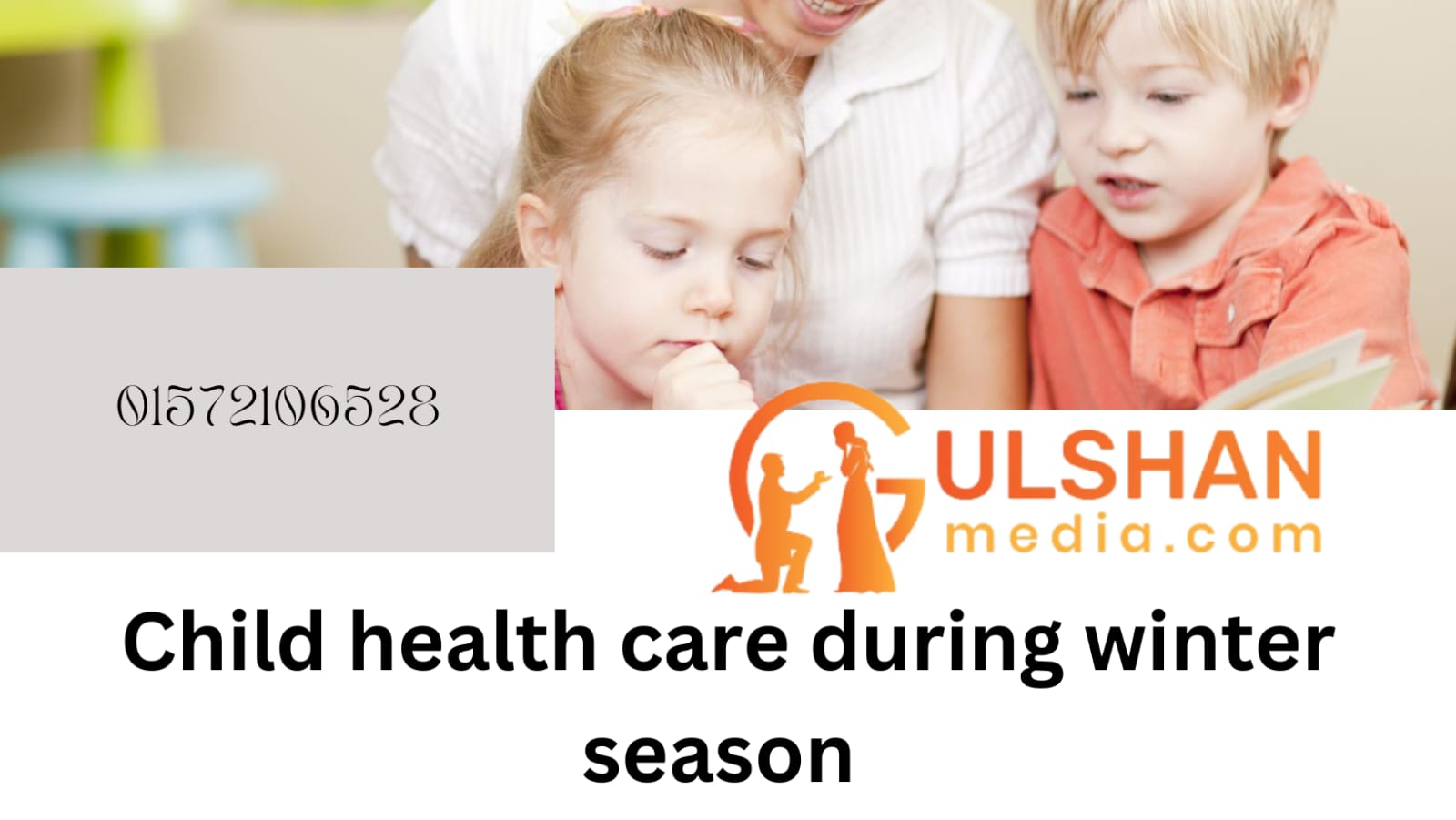Child health care during winter season.

Child health care during winter season.
Child Health Care During the Winter Season: A Comprehensive Guide for Parents
The winter season often brings with it a host of challenges for parents, particularly those with young children. The cold weather, dry air, and increased prevalence of illnesses can all contribute to a decline in child health. However, by taking proactive measures and following a few simple guidelines, you can help keep your little ones healthy and happy throughout the winter months.
Preventive Measures: Shielding Your Child from Winter Illnesses

- Vaccination: Ensure your child is up-to-date on all recommended immunizations, including the annual flu vaccine. This is the single most effective way to protect your child from influenza, a potentially serious respiratory illness.
- Hand Hygiene: Teach your child the importance of proper handwashing, especially before eating, after using the restroom, and after blowing their nose or coughing. Handwashing with soap and water for at least 20 seconds is critical to preventing the spread of germs.
- Respiratory Etiquette: Encourage your child to cover their mouth and nose when coughing or sneezing, preferably with a tissue or the crook of their elbow. This helps prevent the spread of airborne germs.
- Minimize Crowds: Limit your child’s exposure to crowded places like malls, amusement parks, and public transportation, especially during peak cold and flu season.
- Maintain a Healthy Home Environment: Keep your home clean and well-ventilated to reduce the risk of indoor germ transmission. Regularly clean surfaces, wash bedding, and consider using a humidifier to combat dry air.
Nutritional Support: Fueling Your Child’s Immune System

- Balanced Diet: Provide your child with a balanced diet rich in fruits, vegetables, and whole grains. These foods are packed with essential vitamins and minerals that support a healthy immune system.
- Vitamin C: Citrus fruits, bell peppers, broccoli, and kiwi are excellent sources of vitamin C, a powerful antioxidant that boosts immune function.
- Vitamin D: Sunlight is the primary source of vitamin D, but during the winter months, consider incorporating vitamin D-rich foods like fatty fish, eggs, and fortified dairy products into your child’s diet.
- Zinc: Zinc is a crucial mineral that plays a vital role in immune cell development. Include zinc-rich foods like beans, nuts, and lean meats in your child’s meals.
- Hydration: Encourage your child to drink plenty of fluids, especially water, throughout the day to stay hydrated and support overall health.
Just as a car needs fuel to run, your child’s body needs the right nutrition to function at its best. This is especially important for their immune system, which is responsible for fighting off infections and keeping them healthy.
A Balanced Diet for a Healthy Immune System
The best way to support your child’s immune system is to provide them with a balanced diet that includes a variety of nutrient-rich foods. Here are some key nutrients to focus on:
- Vitamin C: Found in citrus fruits, broccoli, and bell peppers, vitamin C is an antioxidant that helps protect cells from damage and supports the production of white blood cells, which are essential for fighting infections.
- Vitamin D: This vitamin helps regulate the immune system and can be obtained from sunlight exposure, fatty fish, and fortified foods like milk and cereal.
- Zinc: Found in beans, nuts, seeds, and seafood, zinc plays a role in wound healing and cell growth, both of which are important for immune function.
- Iron: This nutrient is essential for carrying oxygen to cells, including immune cells. Iron-rich foods include lean meats, poultry, beans, and fortified cereals.
- Protein: Protein is the building block of all cells, including immune cells. Good sources of protein include meat, poultry, fish, eggs, beans, and nuts.
In addition to these specific nutrients, a balanced diet should also include plenty of fruits, vegetables, whole grains, and healthy fats. These foods provide a variety of other nutrients that are important for overall health and immune function.
Other Ways to Support Your Child’s Immune System
In addition to diet, there are other things you can do to help keep your child’s immune system strong:
- Get enough sleep: Sleep is essential for overall health, and it also plays a role in immune function. Children need around 10-12 hours of sleep per night.
- Manage stress: Chronic stress can weaken the immune system. Help your child find healthy ways to cope with stress, such as exercise, relaxation techniques, or spending time in nature.
- Encourage regular exercise: Exercise helps boost the immune system and overall health. Aim for at least 60 minutes of moderate-intensity exercise most days of the week.
- Wash hands frequently: Proper hand hygiene is one of the most important things you can do to prevent the spread of germs. Teach your child to wash their hands often, especially before eating, after using the bathroom, and after being in public places.
By following these tips, you can help keep your child’s immune system strong and healthy, so they can stay active and well throughout the year.
Warmth and Comfort: Protecting Your Child from the Elements
- Dress in Layers: Dress your child in layers of clothing, starting with a base layer of moisture-wicking material, followed by insulating layers, and topped with a waterproof outer layer.
- Protect Extremities: Cover your child’s head, hands, and feet with hats, gloves, and socks to prevent heat loss and protect delicate skin from the cold.
- Avoid Overdressing: Overdressing can lead to overheating and sweating, making your child more susceptible to chills and respiratory illnesses.
- Gradual Temperature Changes: When transitioning from indoors to outdoors and vice versa, allow your child to gradually adjust to the temperature difference to prevent sudden changes that can weaken their immune system.
- Indoor Activities: Encourage indoor activities during extreme cold or windy conditions to minimize exposure to harsh weather elements.
Sleep and Rest: Rejuvenating for a Healthy Child
- Establish a Regular Sleep Schedule: Maintain a consistent sleep schedule for your child, even on weekends, to ensure adequate rest and support their immune function.
- Relaxing Bedtime Routine: Create a calming bedtime routine that includes a warm bath, reading a book, or listening to soothing music to promote restful sleep.
- Comfortable Sleep Environment: Ensure your child’s bedroom is dark, quiet, and cool to promote undisturbed sleep.
- Limit Screen Time: Avoid screen time, including television, computers, and smartphones, for at least an hour before bedtime, as the blue light emitted from these devices can interfere with sleep patterns.
- Encourage Daytime Naps: For younger children, encourage daytime naps to provide additional rest and support their overall well-being.
Monitoring and Responding to Illness
- Early Signs and Symptoms: Be aware of the early signs and symptoms of common winter illnesses, such as a runny nose, fever, cough, and sore throat.
- Seek Medical Attention: If your child develops persistent or severe symptoms, consult your pediatrician promptly for proper diagnosis and treatment.
- Rest and Hydration: Encourage your child to rest and stay hydrated when they are sick. Bed rest allows the body to focus on fighting the infection, while fluids help prevent dehydration.
General Health Tips:
-
Dress for the Weather:
- Layer clothing to regulate body temperature.
- Use hats, gloves, and scarves to cover exposed areas.
-
Hand Hygiene:
- Encourage frequent handwashing, especially before meals and after coughing or sneezing.
- Teach children proper handwashing techniques.
-
Healthy Diet:
- Provide a balanced diet rich in fruits, vegetables, and whole grains to boost the immune system.
- Stay hydrated with water and warm fluids.
-
Adequate Sleep:
- Ensure children get enough sleep to support their immune system.
-
Physical Activity:
- Encourage indoor physical activities to keep them active during the colder months.
Specific Care Tips:
-
Preventing Illness:
- Flu Vaccination: Ensure your child and family members receive the annual flu vaccine.
- Cold Prevention: Practice good hygiene, avoid close contact with sick individuals, and teach children to cough or sneeze into tissues.
-
Managing Illness:
- Recognize Symptoms: Understand common winter illnesses like colds, flu, and respiratory infections.
- Consultation: If your child shows symptoms, consult a healthcare provider for guidance.
-
Winter Allergies:
- Indoor Air Quality: Keep indoor air clean to reduce exposure to allergens.
- Proper Ventilation: Properly ventilate your home to minimize indoor allergens.
-
Skin Care:
- Moisturize: Combat dry skin by using moisturizers and humidifiers.
- Protection: Use sunscreen on exposed skin, as the sun’s rays can still cause damage in winter.
-
Safety Measures:
- Fire Safety: Use space heaters safely, keep flammable objects away, and install and regularly test smoke and carbon monoxide detectors.
- Outdoor Safety: Educate children about outdoor safety during winter activities like sledding or skating.
-
Mental Health:
- Sunlight Exposure: Encourage some outdoor time during daylight hours for exposure to natural light.
- Communication: Keep communication lines open to address any emotional or mental health concerns.
Emergency Preparedness:
-
Emergency Kit:
- Keep a well-stocked emergency kit with essentials like first-aid supplies, medications, and emergency contacts.
-
Understanding Warning Signs:
- Know the signs of frostbite, hypothermia, and other cold-related emergencies.
-
Emergency Contacts:
- Have emergency contact numbers readily available.
Key Takeaways:
- Proactive Approach: Focus on prevention through vaccination, hygiene, and healthy habits.
- Consultation: Seek medical advice promptly if your child shows concerning symptoms.
- Education: Teach children about winter safety and hygiene practices.
Remember, individual health needs may vary, so it’s important to tailor care based on your child’s
Conclusion
In conclusion, providing your child with a balanced diet rich in essential nutrients like vitamin C, vitamin D, zinc, iron, and protein is crucial for supporting their immune system and overall health. Additionally, encouraging adequate sleep, stress management, regular exercise, and proper hand hygiene practices further strengthens their immune defenses against infections and illnesses. By prioritizing these aspects of their well-being, you can help your child maintain a robust immune system and enjoy a healthier and more active lifestyle.
marriage website in bangladesh
“বিয়ে সংক্রান্ত যেকোনো তথ্য ,সেবা এবং পরামর্শ পেতে যোগাযোগ করুন গুলশান মিডিয়ার সাথে। ” কল করুন: 01779940833
Email : gulshanmedia2@gmail.com









Your article helped me a lot, is there any more related content? Thanks! https://www.binance.info/register?ref=IHJUI7TF